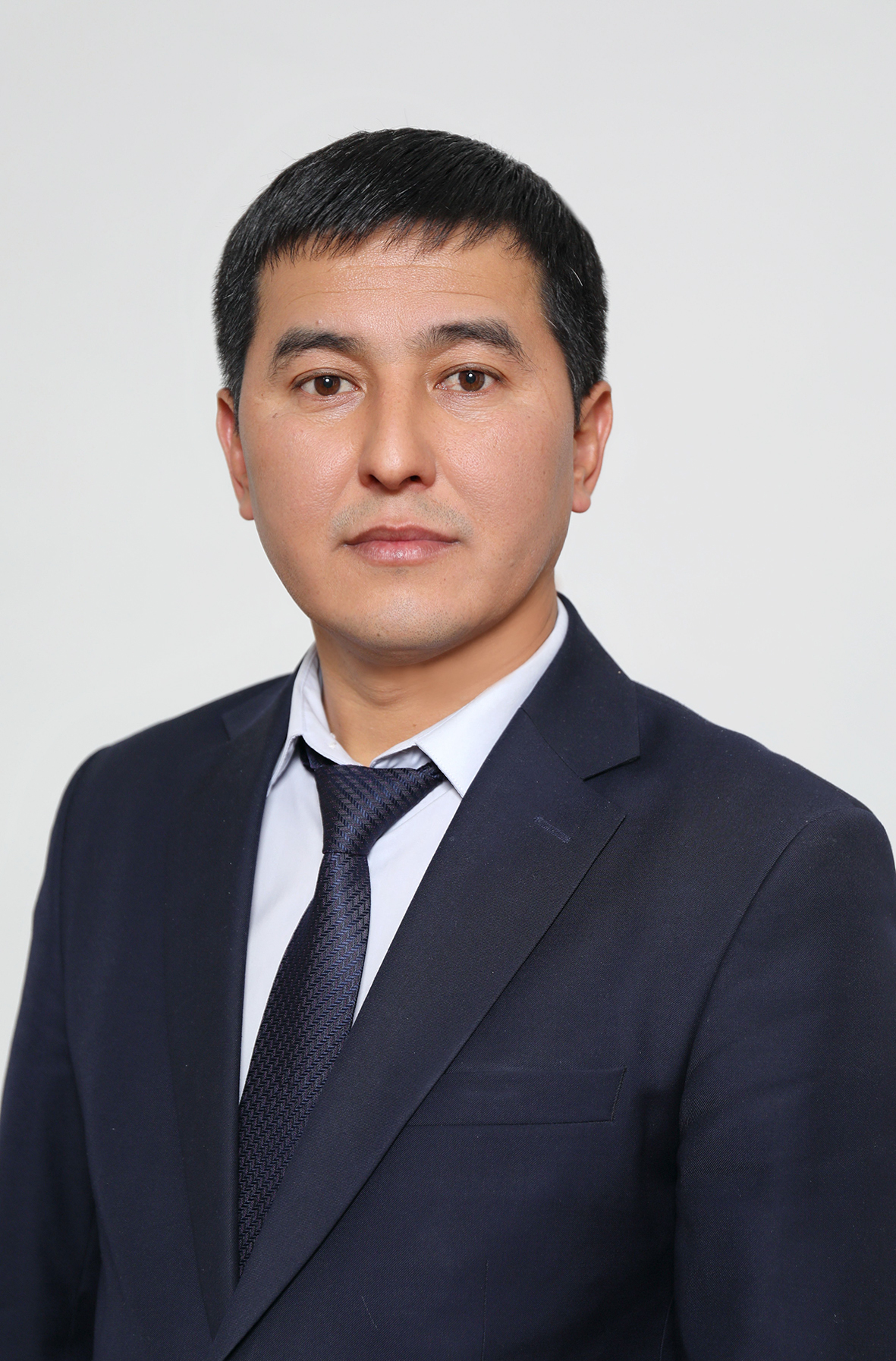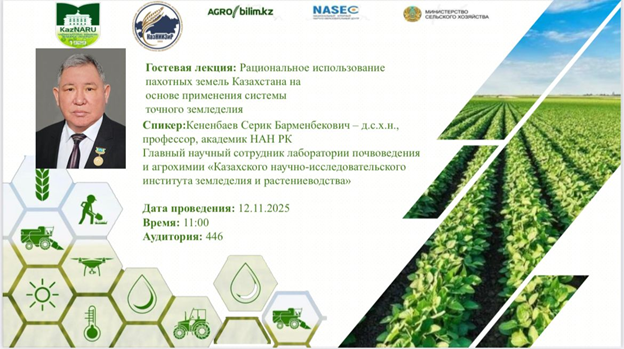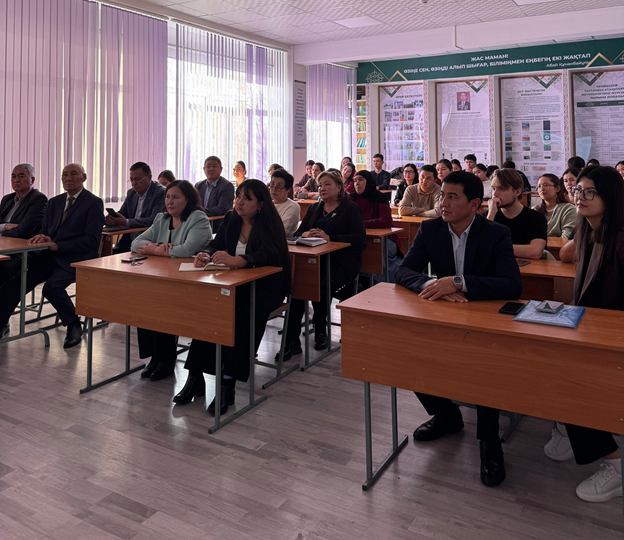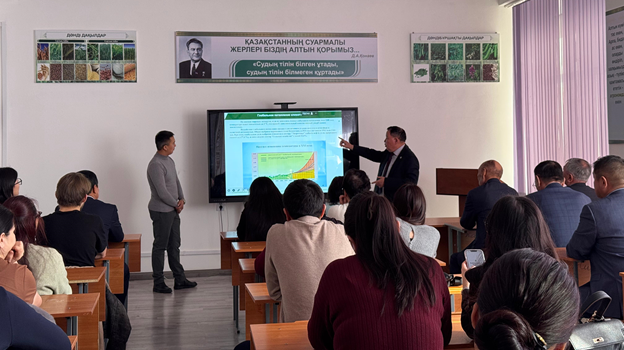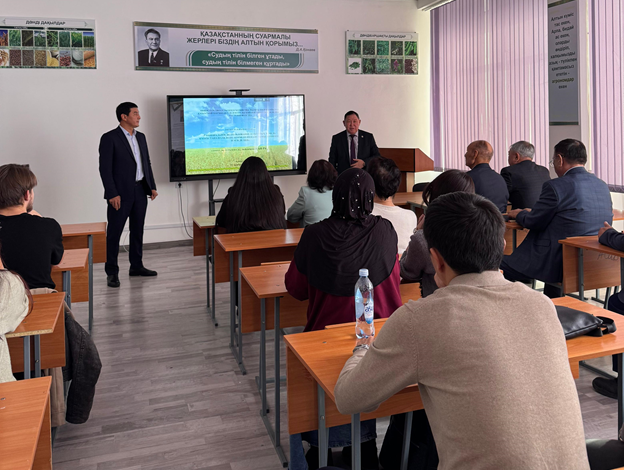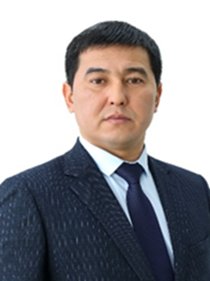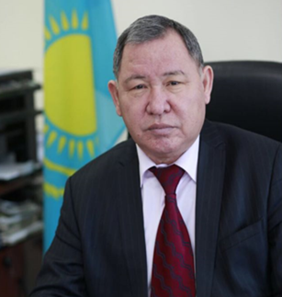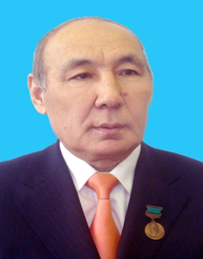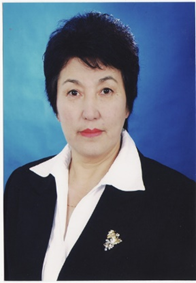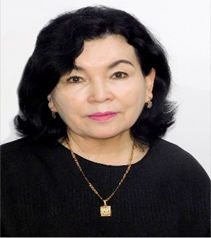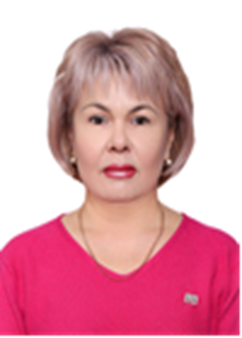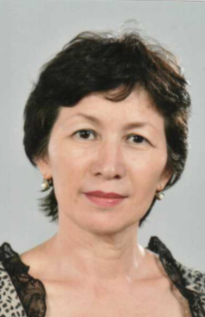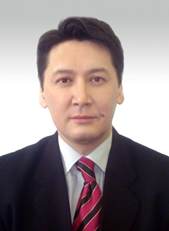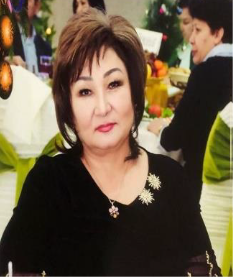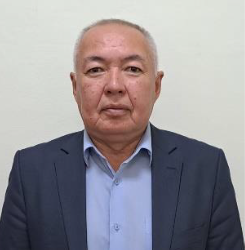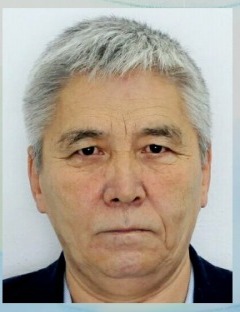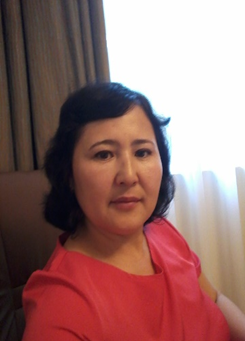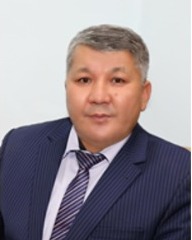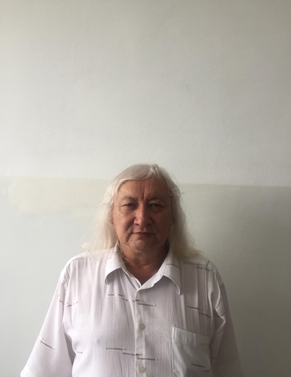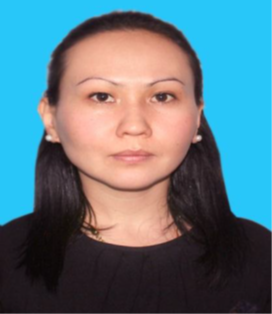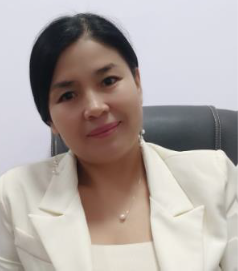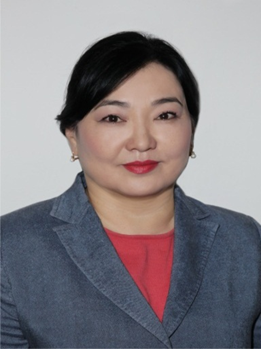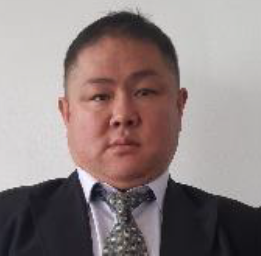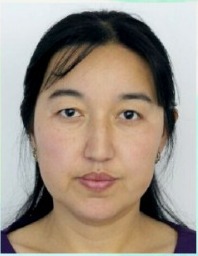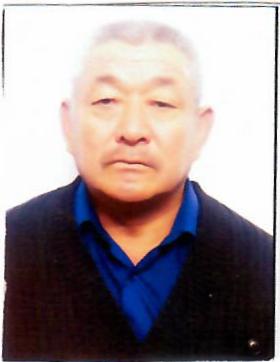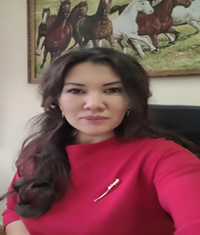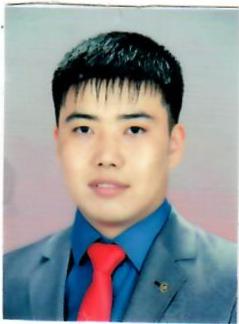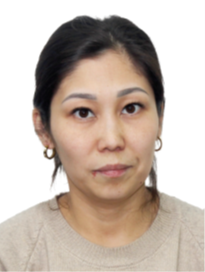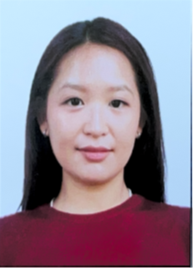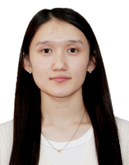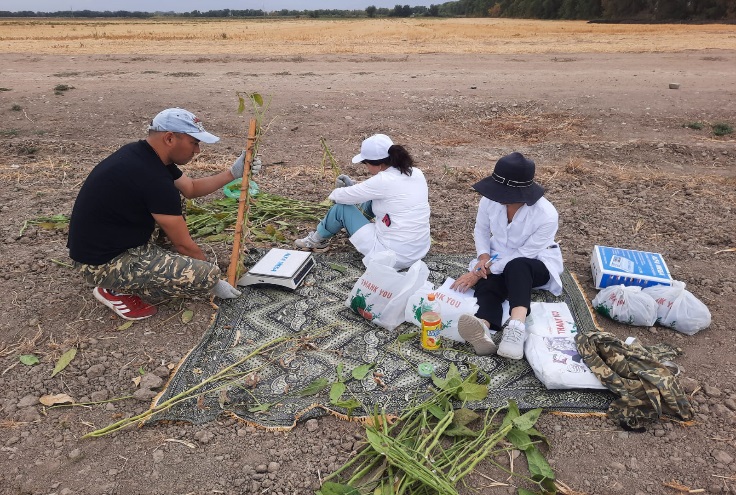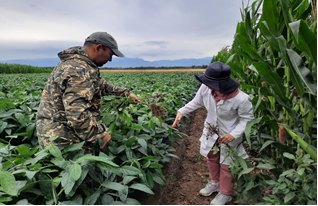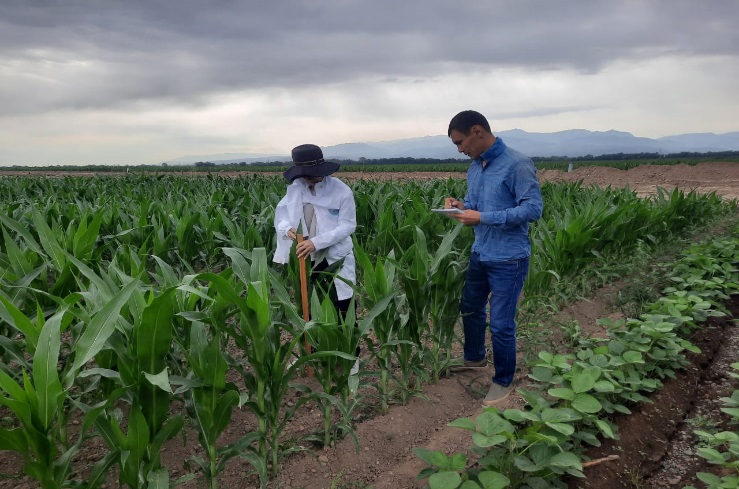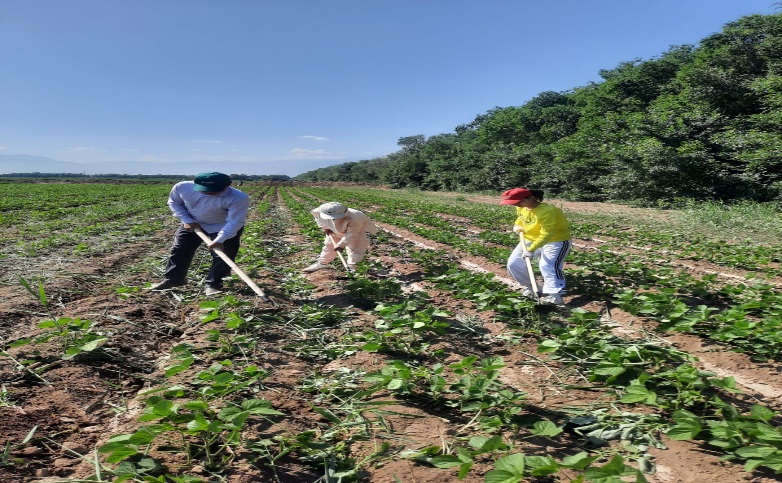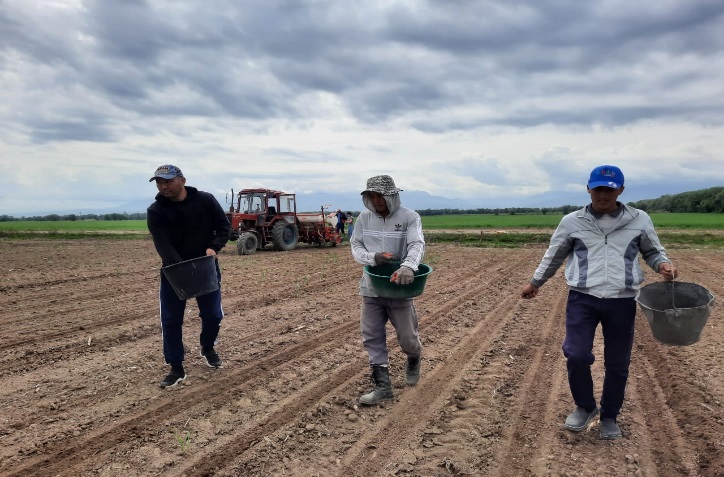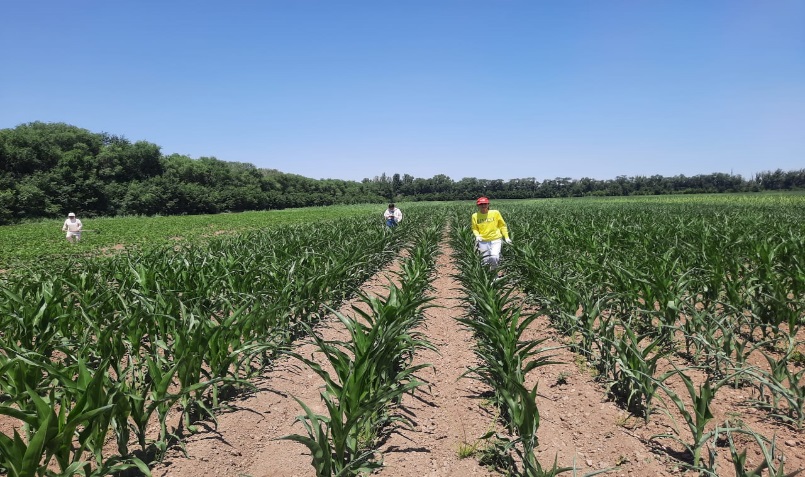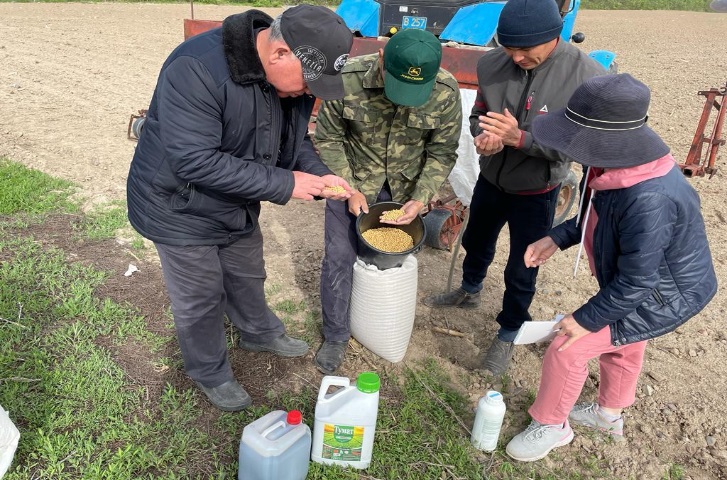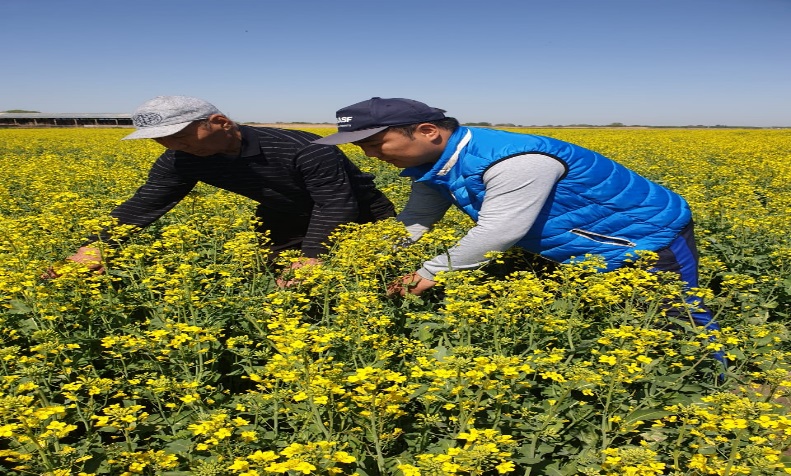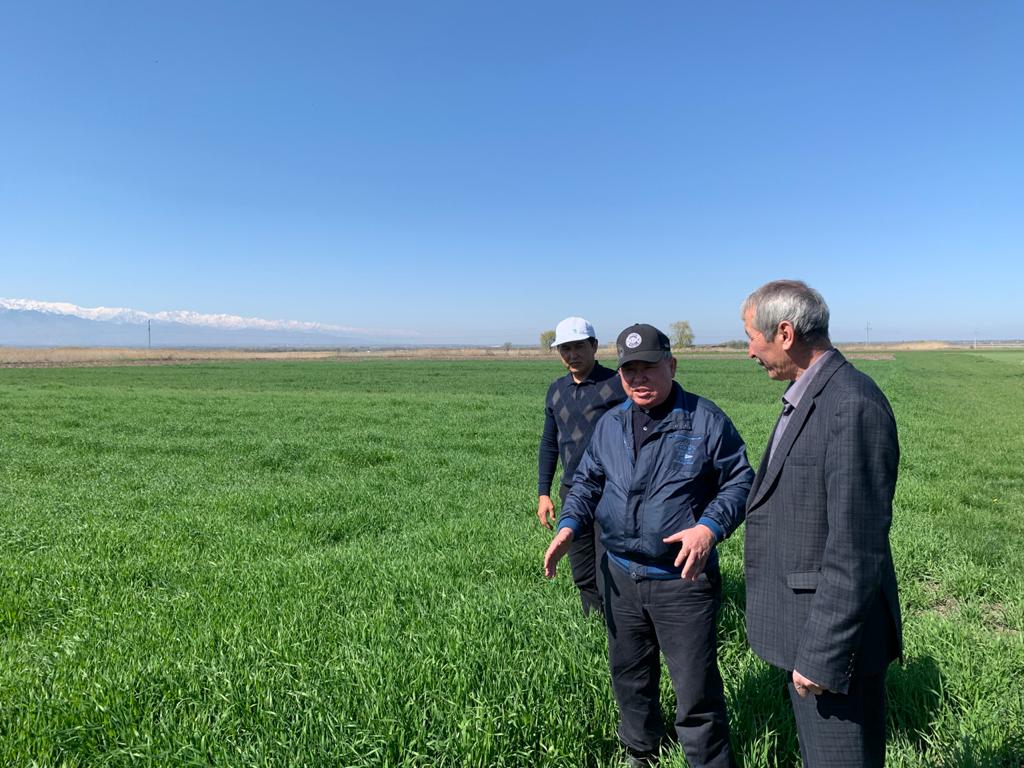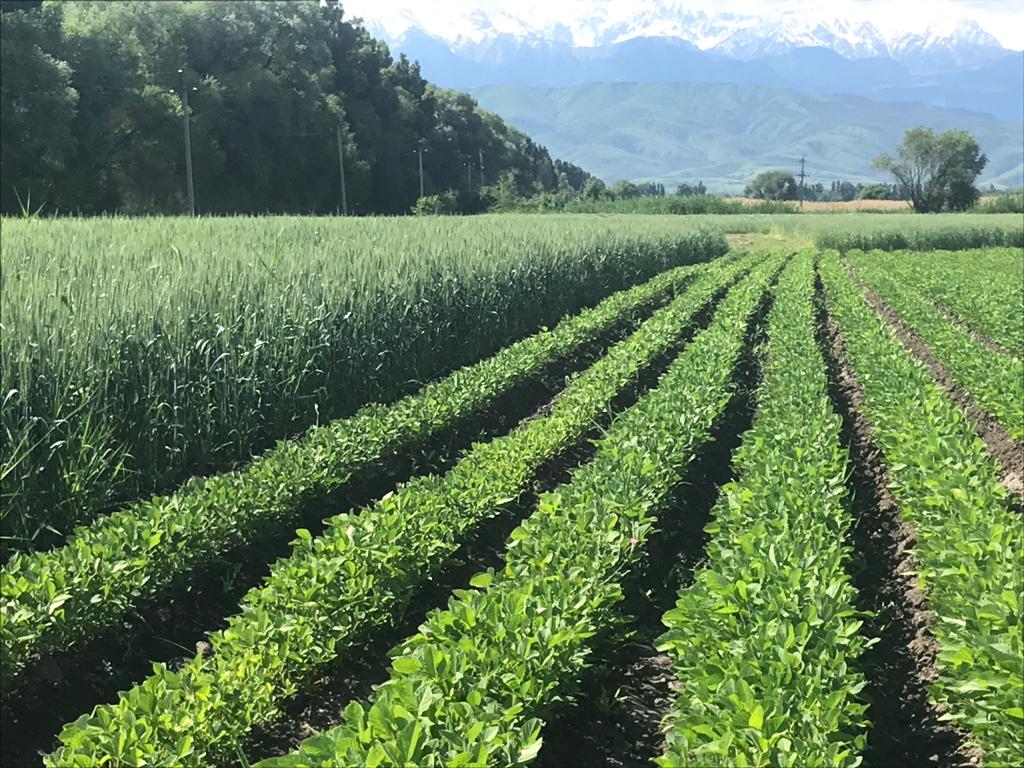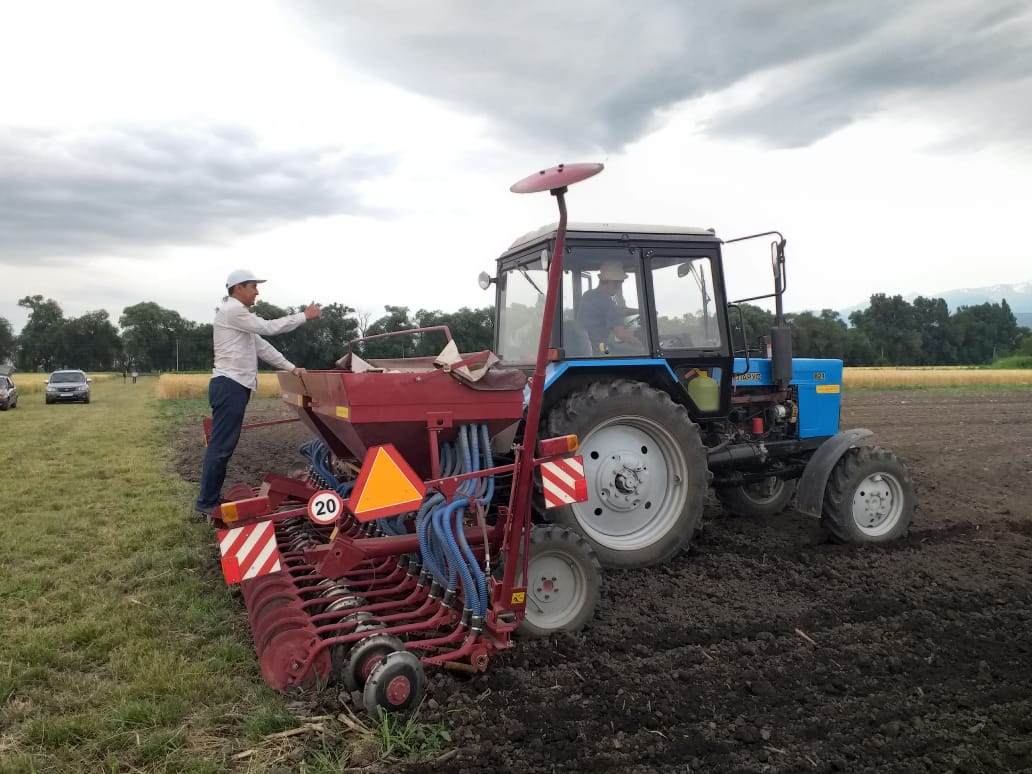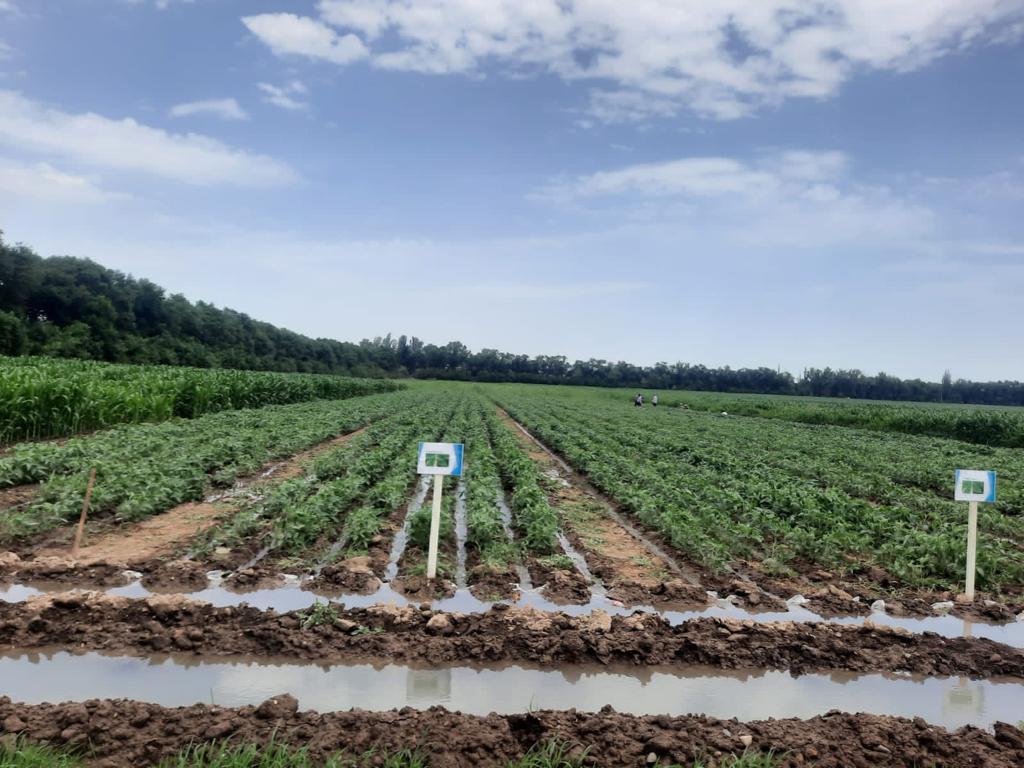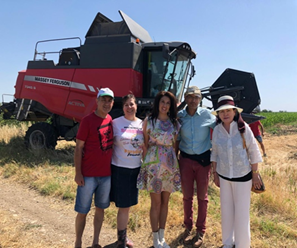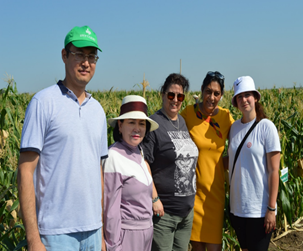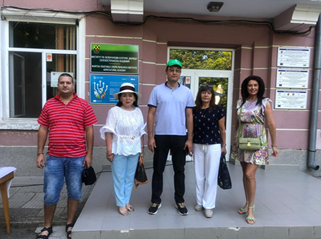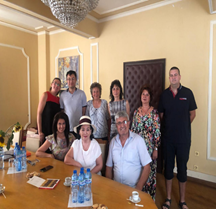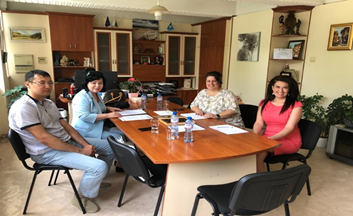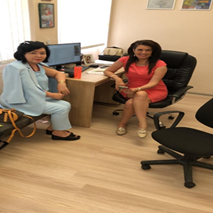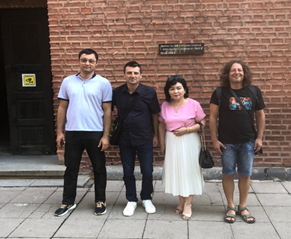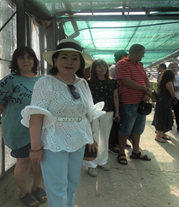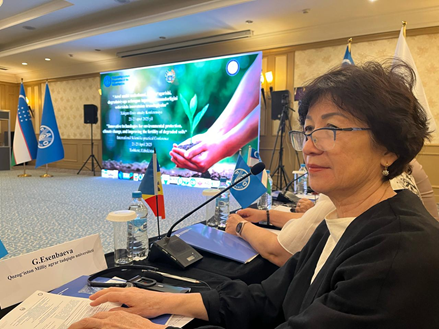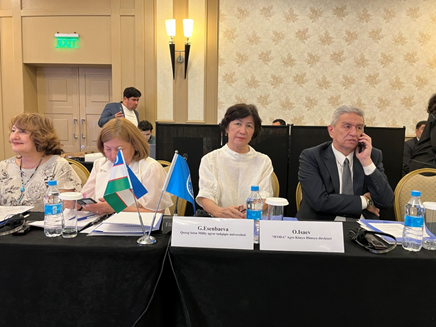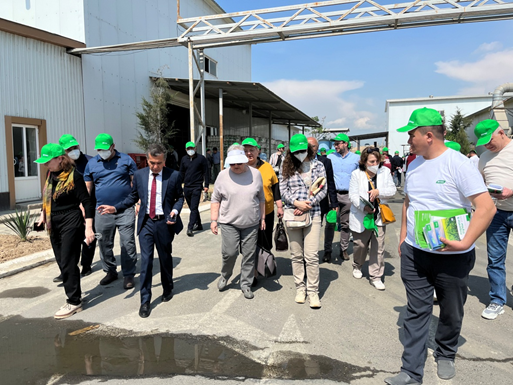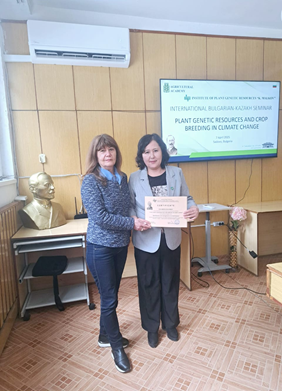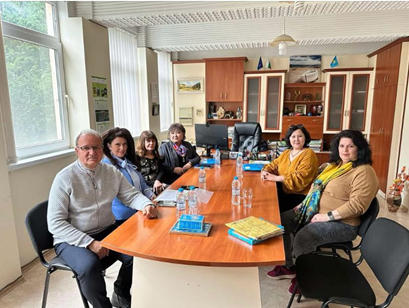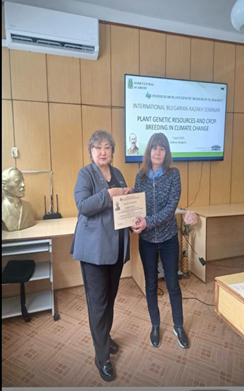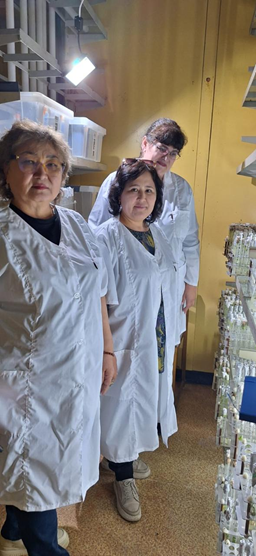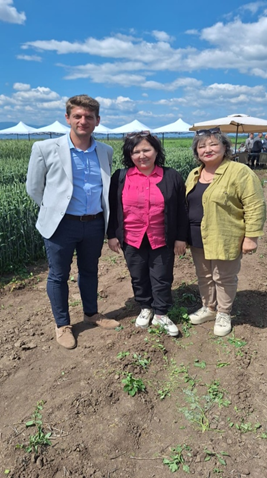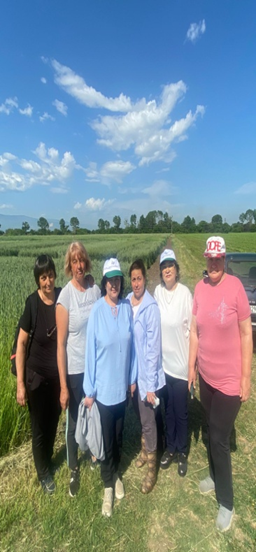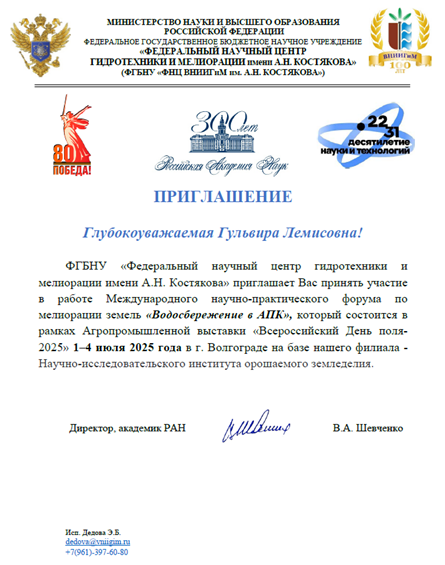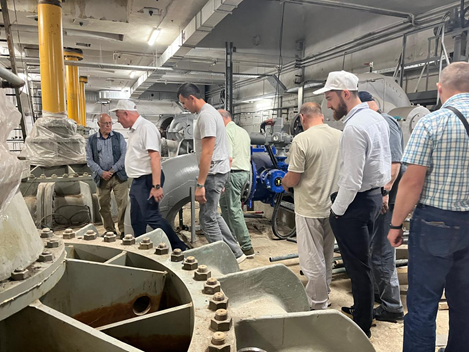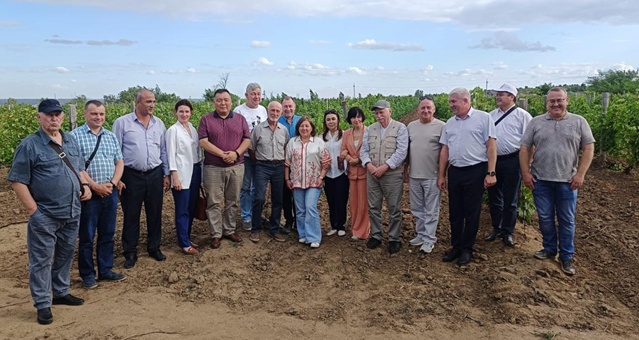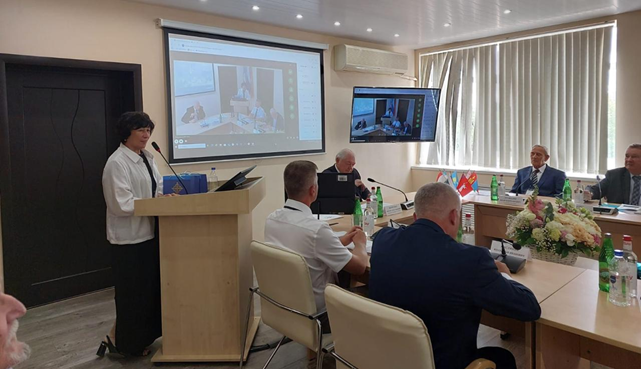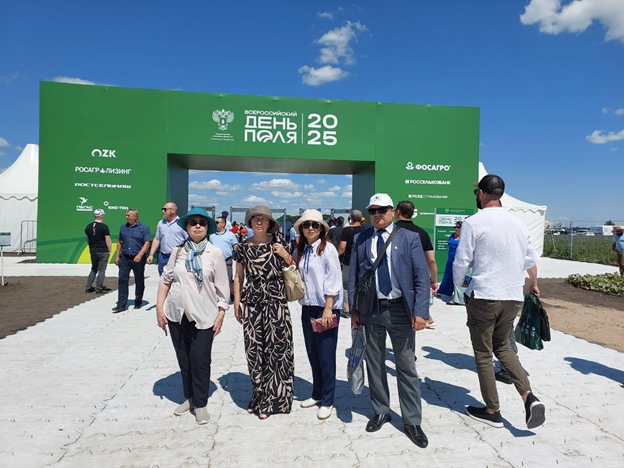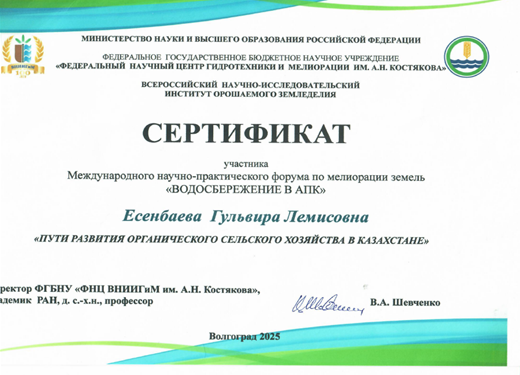Research work at the Department of Agronomy, breeding, and biotechnology
The main objectives of the department “Agronomy, breeding, and biotechnology” in research work are:
- priority development of fundamental and applied research as the basis for creating new knowledge and introducing innovative technologies into production;
- ensuring the training of qualified specialists and highly qualified scientific and pedagogical personnel based on the achievements of scientific and technological progress;
- providing students with high-quality educational services by introducing innovative technologies into the educational process, successfully combining theoretical and scientific-practical research and innovative developments.
Research work at the department is carried out with the priority direction of the development of agricultural science in the Republic of Kazakhstan. Joint research programs are being implemented with leading universities and research centers of the world (creation of joint projects for the transfer and adaptation of new varieties and hybrids of crops with the Institute of Field and Vegetable Growing of Serbia, Novi Sad). The results of research work (on precision agriculture, drip irrigation, and diversification of crop production) are introduced into agricultural associations and farms of the Republic of Kazakhstan by providing consulting services through the Atameken Chamber of Entrepreneurs.
Projects for the Ministry of Education and Science of the Republic of Kazakhstan
1. “Transfer and adaptation of winter pea varieties of foreign selection in the conditions of Kazakhstan.” 2021 Head: Academician of the National Academy of Sciences of the Republic of Kazakhstan, Doctor of Agricultural Sciences, Professor S.B. Kenenbaev.
2. “Selection of non-traditional crops for intensive use of irrigated lands and creation of a green conveyor depending on the bioclimatic potential of growing areas” 2021-2023. Project leader: Candidate of Agricultural Sciences, Professor Erzhanova K.M.
3. “Agrobiological methods for restoring the fertility of degraded irrigated lands in the southeast of Kazakhstan.” 2022-2024 Project manager: Ph.D., associate. Professor Doszhanova A.S.
4. “Develop and implement green technology for cultivating corn, ensuring increased soil fertility and the production of organic products.” 2022-2024 Academician of the National Academy of Sciences of the Republic of Kazakhstan, Doctor of Agricultural Sciences, Professor Kenenbaev S.B.
5. “Adapted variety of winter peas “Kosmaј” of Serbian selection and technology for cultivating it in organic agriculture of Kazakhstan.” 2023-2025 Project leader: Candidate of Agricultural Sciences, Professor Esenbaeva G.L.
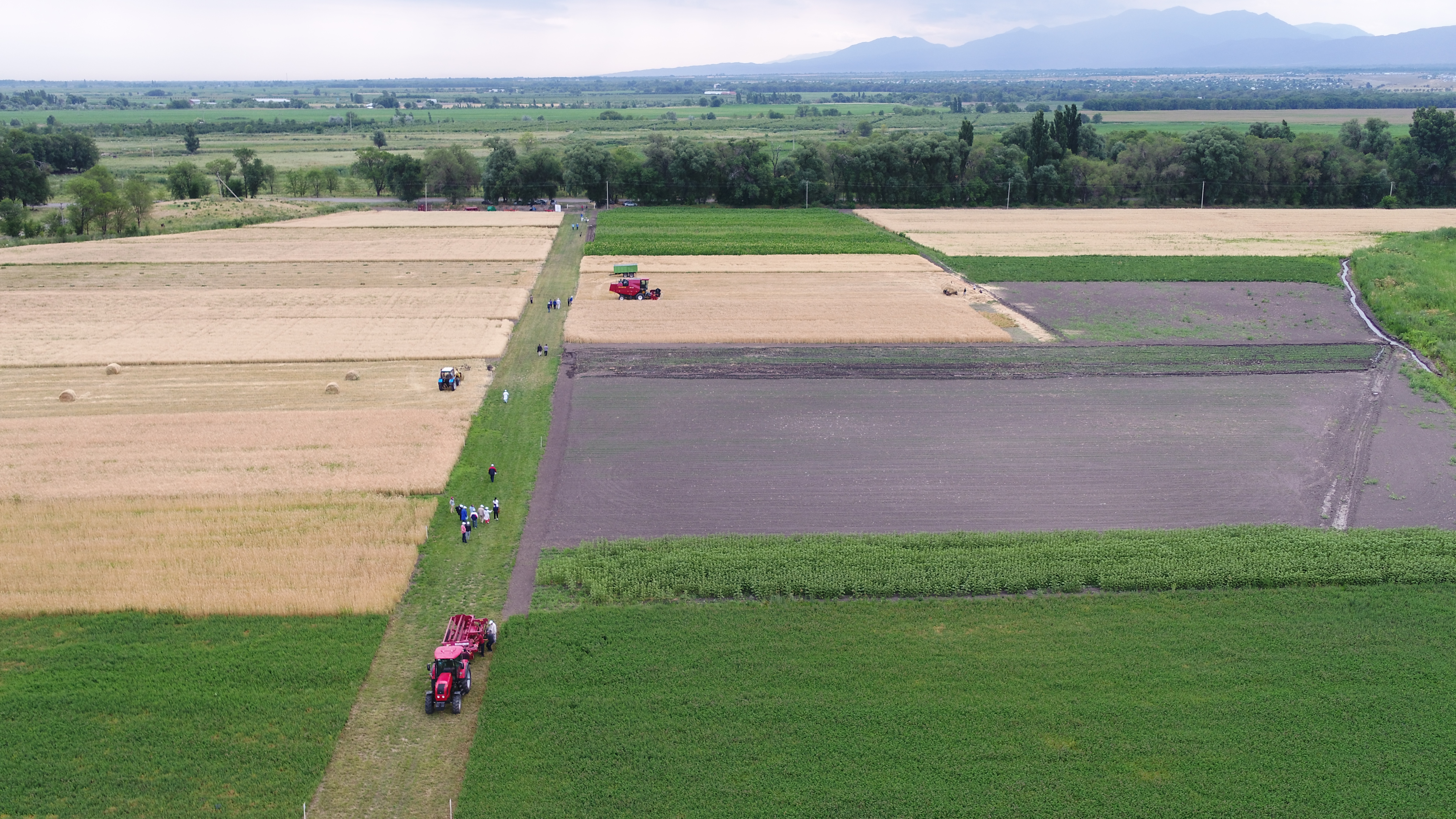
Professional Development and International Experience of Faculty Members
Professor Gulnar Azimbayevna Myrzabayeva, from the Department of Agronomy, Plant Breeding and Biotechnology of the Kazakh National Agrarian Research University, winner of the “500 Scientists” project under the international “Bolashak” program, completed an international scientific internship at the K. Malkov Institute of Plant Genetic Resources at the Experimental Station in Sadovo, Bulgaria, from June 10 to August 22, 2024.
The topic of the internship was “Innovative Technologies in the Production of Cereal, Legume, Oilseed, and Industrial Crops, as well as in Irrigated Agriculture.”
During the internship, special attention was given to studying plant genetic resource collections and their application in breeding, the development of modern cultivation technologies, and the promotion of biological (organic) agriculture. The Institute of Plant Genetic Resources is a leading scientific center in Bulgaria that has, for more than 135 years, been engaged in the collection, study, and preservation of plant collections of high scientific and historical value. The institute’s National Genebank preserves approximately 67,000 seed samples from 2,670 plant species, including rare and wild forms. The institute also includes a botanical garden, herbarium, and specialized laboratories in seed science, plant protection, biochemistry, physiology, agrochemistry, and biotechnology.
The main purpose of the internship was to familiarize with innovative technologies and production methods used in Bulgaria’s scientific institutions, as well as to exchange experience in applying information and biotechnological solutions in crop production. The program was aimed at enhancing professional qualifications, developing scientific competencies, and integrating into the international scientific community.
As a result of the internship, Professor Myrzabayeva strengthened scientific ties with Bulgarian research institutes, gained practical experience in implementing innovative technologies in breeding work, and, together with Bulgarian scientists, prepared and published two scientific monographs:
— an individual publication of 193 pages in Russian, and
— a joint trilingual book (Russian, English, and Bulgarian) comprising 604 pages.
The knowledge and experience gained will be actively applied in the educational and research activities of KazNAIU, contributing to the development of international cooperation and the implementation of advanced technologies in Kazakhstan’s agricultural science.
Professor Gulmira Lemisovna Yesenbayeva, head of the scientific project GF AR 19680408 titled “Adapted Winter Pea Variety ‘Kosmaj’ of Serbian Selection and the Technology of Its Cultivation in Organic Agriculture of Kazakhstan”, was on a business trip to Tashkent, Uzbekistan, from April 20 to April 24, 2025, in accordance with Order No. 89-и/с dated April 2, 2025.
According to the travel program, Professor Yesenbayeva participated in the International Scientific and Practical Conference on “Environmental Protection, Climate Change, and Innovative Technologies for Increasing the Fertility of Degraded Soils”, which took place from April 21 to 23, 2025, at the National University of Uzbekistan named after Mirzo Ulugbek.
As part of the conference, Professor Yesenbayeva prepared and presented a scientific paper titled “Winter Pea ‘Kosmaj’ of Serbian Selection in Organic Agriculture of Kazakhstan.” She delivered a report on this topic during the plenary session held on April 21, 2025, at the Wyndham Tashkent Hotel. The presentation highlighted the results of adapting the ‘Kosmaj’ variety to Kazakhstan’s climatic conditions and discussed its prospects for use in organic farming.
During the conference, Professor Yesenbayeva also took part in a scientific field expedition to the western spurs of the Chatkal Range and the Fergana Valley. The expedition included a study of the main soil types across vertical and horizontal zonation. Of particular interest was the visit to the “Ifoda Agro Kimyo Himoya” enterprise in Namangan, where innovative developments in fertilizer production were presented, and field trials on modern resource-efficient and innovative irrigation technologies were demonstrated.
As a result of the trip, professional contacts were established with scientists from Uzbekistan, Moldova, Russia, and other countries. These newly formed connections lay the foundation for further international scientific cooperation, the development of joint research projects, publications, and exchange of experience among researchers in the fields of organic agriculture and ecology.
From April 2 to June 29, 2025, associate professors of the Department of Agronomy, Plant Breeding and Biotechnology at the Kazakh National Agrarian Research University — Gulsum Ongarovna Bayadilova and Kalamkas Zhanabekovna Kulanbayeva — completed a three-month scientific internship at the K. Malkov Institute of Plant Genetic Resources (Sadovo, Republic of Bulgaria) under the Agrarian Academy of Bulgaria. The internship was carried out within the framework of the state programs “Bolashak” and “500 Ғалым (500 Scientists)”, aimed at developing human capital and promoting international cooperation in science and education.
The theme of the program was “Innovative Technologies in Irrigated Agriculture.” During the internship, the professors studied modern methods of drip and sprinkler irrigation, digital technologies for monitoring soil moisture, the use of agro-GIS systems for water resource management, as well as environmentally safe approaches to maintaining soil fertility. Special attention was given to sustainable agrotechnologies that ensure stable crop yields under conditions of limited water resources and climate change.
During the scientific practice, the participants took part in research projects involving the study of cereal, legume, and vegetable crop collections, the analysis of international crop descriptors, and experiments assessing plant physiological resistance to abiotic and biotic stresses. A significant part of the research was conducted in laboratories and experimental farms utilizing advanced precision agriculture methods and water-saving systems.
The acquired knowledge and practical skills will be actively implemented at KazNAIU. Plans include updating academic programs, developing new modules on digital and sustainable agriculture, and conducting demonstration classes and training seminars for students, master’s students, and agronomists. On the university’s experimental training sites, demonstration zones equipped with drip and sprinkler irrigation systems will be established, allowing students to gain hands-on experience with cutting-edge agrotechnological practices.
Furthermore, the internship represented an important step in strengthening international scientific collaboration. Following the internship, agreements were reached on further cooperation between KazNAIU and the Institute of Plant Genetic Resources of Bulgaria, including experience exchange, joint research activities, and participation in international grant projects.
The results of the internship contribute to the enhancement of the professional competencies of the faculty, the expansion of the university’s scientific horizons, and the integration of innovative approaches into the training of a new generation of specialists for Kazakhstan’s agricultural sector.
Professor Gulmira Lemisovna Yesenbayeva, head of the scientific project GF AR 19680408 titled “Adapted Winter Pea Variety ‘Kosmaj’ of Serbian Selection and the Technology of Its Cultivation in Organic Agriculture of Kazakhstan”, was on an official business trip to Volgograd (Russian Federation) from June 29 to July 5, 2025, in accordance with Order No. 200-и/с dated May 22, 2025.
Professor Yesenbayeva participated in the International Scientific and Practical Forum on Land Reclamation “Water Supply in the Agro-Industrial Complex”, which took place from July 1 to 4, 2025, as part of the Agro-Industrial Exhibition “All-Russian Field Day–2025”, hosted by the Research Institute of Irrigated Agriculture.
During the event, Professor Yesenbayeva prepared and delivered a presentation titled “Ways of Developing Organic Agriculture in Kazakhstan” and also published an article in the agricultural scientific and production journal “Irrigated Agriculture.” Her report was presented at the plenary session of the forum on July 2, 2025, and attracted considerable interest among international participants, as it addressed relevant issues of environmentally sustainable farming and the implementation of organic technologies under the conditions of Kazakhstan.
Within the framework of the forum, Professor Yesenbayeva took part in several field-based scientific and practical seminars, including:
-
“Reconstruction of the Gorodishchensk Irrigation System” (FGBOU “Volgogradmeliovodkhoz”);
-
“Development of Viticulture on Irrigated Lands of the Volgograd Region” (Private Farm of M.V. Shishlyannikov, Dubovsky District);
-
“History of Construction and Operation of the Volga–Don Shipping Canal Named after V.I. Lenin” (Pyatimorsk Settlement, Kalachevsky District).
In addition, Professor Yesenbayeva visited the Agro-Industrial Exhibition “All-Russian Field Day–2025”, held on July 4, 2025, in the Sredneakhtubinsky District of the Volgograd Region, where innovative developments in land reclamation, crop breeding, and sustainable agriculture were showcased.
As a result of this business trip, professional connections were established with scientists from Russia, Belarus, and other countries, promoting further development of international scientific cooperation, exchange of experience, and the preparation of joint research publications and collaborative projects.

